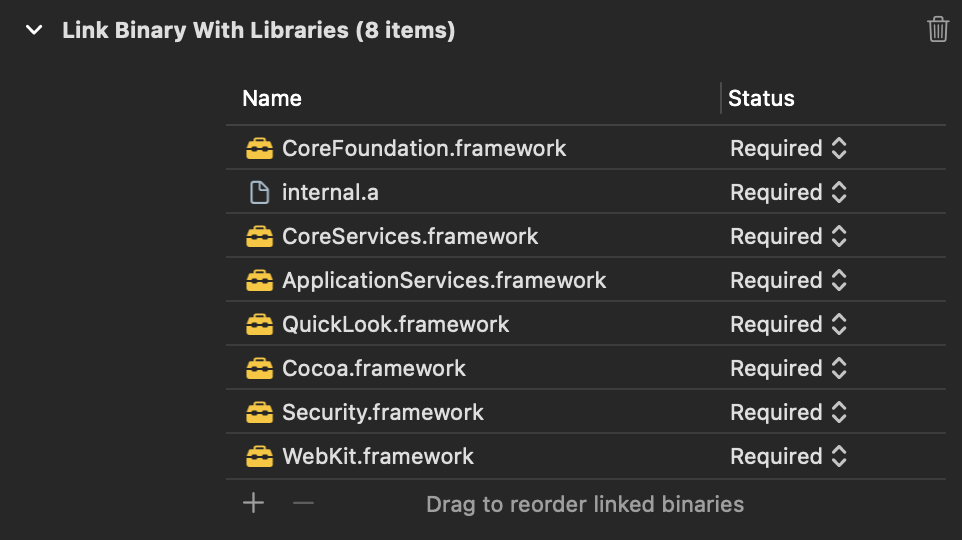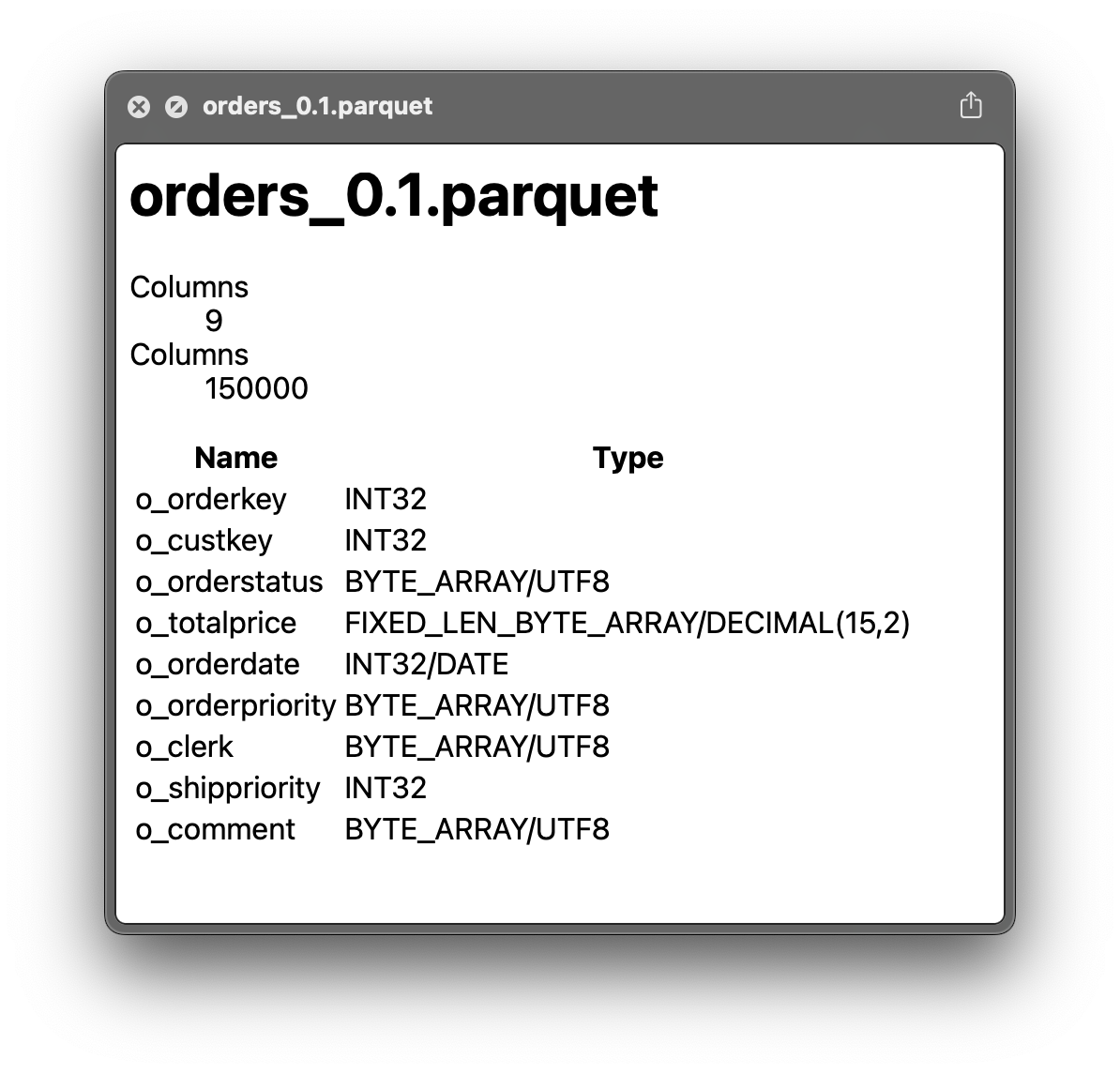Writing QuickLook plugins in Go
I recently wanted to write a QuickLook plugin for Apache Parquet because I’m starting to use it more and more. There are some neat third-party plugins out there like QLMarkdown and QLStephen so I sat down to figure out how to write my own.
My first questions were which programming language I’d have to use and how I could write as little new code as possible.
I first tried to vendor libarrow and link against that but ran into issues making clang happy with the C++17 stdlib (which libarrow targets). I have a feeling it could be made to work but I went back to the web and found a neat project that used Go for the plugin code. The Go Arrow implementation happens to be one of the few that is written natively (rather than implementing as a binding to libarrow) so I gave that a shot.
Making a New XCode Project
To start out, I wasn’t able to figure out how to make XCode create a new QuickLook plugin from scratch so I ended up adapting from QLMarkdown. The important files seemed to be:
main.c: Entrypoint for the plugin. Mostly boilerplate aside from the GUID.GeneratePreviewForURL.m: Definition and implementation of code for generating our QuickLook preview. This is what I cared about most.GenerateThumbnailForURL.m: Definition and implementation of code for generating thumbnails for our files. Not used here.
The core bit on the XCode side is essentially the implementation in GeneratePreviewForURL.h which implememnts what looks like a fairly reasonable interface in order to get data back to macOS for displaying the preview:
OSStatus GeneratePreviewForURL(void *thisInterface, QLPreviewRequestRef preview, CFURLRef url,
CFStringRef contentTypeUTI, CFDictionaryRef options) {
NSString *content = MyFun((__bridge NSURL *)url);
CFDictionaryRef previewProperties = (__bridge CFDictionaryRef) @{
(__bridge NSString *)kQLPreviewPropertyTextEncodingNameKey : @"UTF-8",
(__bridge NSString *)kQLPreviewPropertyMIMETypeKey : @"text/html",
};
QLPreviewRequestSetDataRepresentation(preview, (__bridge CFDataRef)[content dataUsingEncoding:NSUTF8StringEncoding],
kUTTypeHTML, previewProperties);
return noErr;
}
So basically I needed to write a function that:
- Takes a filepath (URL)
- Returns a string
Writing the Go Portion
Thanks to CGo, we can easily work with Go and C code at the same time which (I think) is why all of this works so well.
A basic skeleton for the Go code looks like this:
package internal
import ( //... your packages here )
import "C"
//export MyFun
func MyFun(cpath *C.char) (code C.int, outData unsafe.Pointer, outLen C.long) {
path := C.GoString(cpath)
var buf bytes.Buffer
// Now just write data into `buf`
return 0, C.CBytes(buf.Bytes()), C.long(buf.Len())
}
A couple of things to note:
- The
import "C"is key here - I’m not sure if the
//export MyFunis required here but I left it in - The function you write just needs to write into
bufwhich is pretty straightforward in Go
Last, to compile our Go module into something we can tell XCode to link against, we do something I’d never done before with Go:
go build -buildmode=c-archive -o internal.a ./internal
The above produces internal.a which is critical for the next step.
Bringing Both Sides Together
To tell XCode to compile our Objective-C code and to link against internal.a, we need to add it under XCode under Build Phases > Link Binary With Libraries.
Depending on what Go code you end up writing, you may need to also add various .frameworks until linking succeeds.
One surprising thing I ran into was that using Go’s template/html package required Security.framework.
In total, I ended up linking against:

Wrapping Up
Once built, you can move the result into ~/Library/QuickLook.
You may have to run qlmanage -r and even preview other files to get the new previews to be picked up.
Overally, this is a bit finicky and I wish double-clicking on a *.qlgenerator file just prompted you to install it and handled caches for you.
In the end, my preview for Parquet ended up looking like this:

I put the full source code for my plugin at QLArrow